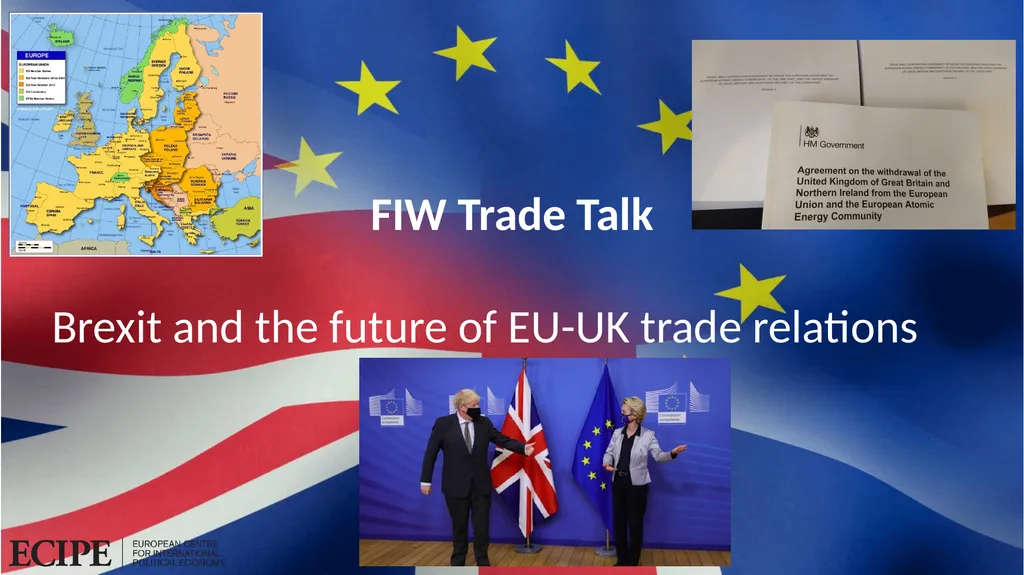
Author : giovanna-bartolotta | Published Date : 2025-05-24
Description: FIW Trade Talk Brexit and the future of EU-UK trade relations 2 Four slides Nature of modern trade relations UK-EU trade agreements and modern trade relations Possible next steps and UK economic adjustment Bigger trade picture in theDownload Presentation The PPT/PDF document "" is the property of its rightful owner. Permission is granted to download and print the materials on this website for personal, non-commercial use only, and to display it on your personal computer provided you do not modify the materials and that you retain all copyright notices contained in the materials. By downloading content from our website, you accept the terms of this agreement.
Here is the link to download the presentation.
"FIW Trade Talk Brexit and the future of EU-UK"The content belongs to its owner. You may download and print it for personal use, without modification, and keep all copyright notices. By downloading, you agree to these terms.












